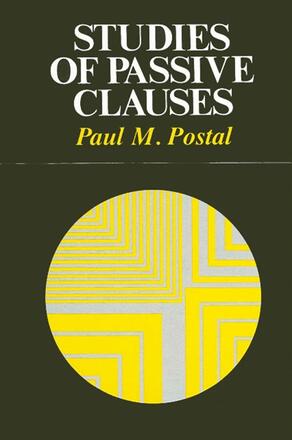
Studies of Passive Clauses
Alternative formats available from:
Description
In this work, Paul M. Postal supports the universalist theory of language by examining passive clauses. Contrary to a skeptical tradition, Postal argues that passive clauses are cross-linguistically identifiable and characterizable. This study proposes refinements of the analysis of the natural language grammatical category Passive Clause. These refinements include an account of the notion 'dummy nominal,' central to the analysis of impersonal passive clauses; additions permitting a proper typology of the major known subtypes of Passive Clause; a generalization permitting application to clauses whose subjects are not earlier level direct objects; and, construction of precise rule concepts to represent restrictions on passive clauses.
The passive domain supports the universalist approach in three distinguishable ways: (1) by permitting formulation of otherwise apparently unstatable lawful characteristics of all passive structures; (2) by facilitating statement of language-specific passive constraints holding in diverse languages; and, (3) by allowing uniform statement in grammars of recurrent constraints on passives. Each mode of support is applied to actual cases based on material from more than a dozen languages from English and French to Quiche (Mayan) and Chi-Mwi:ni (Bantu).
Paul Martin Postal is a Research Staff Member at IBM's T. J. Watson Research Center. He has also taught linguistics at MIT and the City University of New York. Postal has written numerous articles and books, including Constituent Structure, Cross-Over Phenomena, Arc Pair Grammar (with D. E. Johnson).
Reviews
"It will be the best introduction to arc pair grammar (APG) available, and as such will be a standard work for anyone who wishes to learn something about this framework. " — Geoffrey K. Pullum, Cowell College, University of California at Santa Cruz
"Postal provides a detailed crosslinguistic account of a construction-type that has long been at the center of syntactic investigation but has resisted real explanation so far. The book will be of great interest to anyone working on grammatical relations, regardless of their particular theoretical leanings. " — Mark Aronoff, State University of New York at Stony Brook